What are the tax and investment considerations for a Granny Flat above versus a Tiny Home below? Income Tax Return Reporting - Income Streaming Tiny Homes Tiny home ownership does not have to follow the ownership interest of the underlying property ownership. For...
February 2022 Newsletter Property & Tax
Property Price Increases and Tax?

Residential properties values have increased in some cases over 30% in the last year, what does this mean for owners and investors?
Family Home
If the property being sold is the family home and it qualifies for the main residence exemption, then the owner can cash in on the current property boom with no CGT consequences upon sale!
To recap, the main residence exemption offers a full exemption from CGT where the following conditions are met:
- The owner is an individual
- The dwelling was the individual’s main residence throughout the period of ownership
- The individual did not acquire the ownership interest either as a beneficiary or trustee of a deceased estate.
Note that there is a two-hectare limit on the area of land that is covered by the exemption. Further, spouses (and also an individual) can generally only have one main residence at any one time.
Partial Exemption
However, only a partial exemption from CGT will be available where the dwelling was a person’s main residence for only part of their ownership period. This can occur where:
- The dwelling was not occupied as a main residence when it was first practicable to do so after its acquisition
- In renting out the property, the six-year rule was exceeded (under this rule, an owner can rent out their main residence for up to six years at any one time and maintain the full main residence exemption provided they do not claim another dwelling as their main residence during this time – other conditions also apply)
- The four-year period for building a dwelling on vacant land has been exceeded
- The home was used to produce income, such as part of it was used as a place of business, or it was rented out in part or in full. see also – CGT on the sale of your home with a Granny Flat?
If an owner is only eligible for a partial exemption, any capital gain or loss is pro-rated by reference to the part of the ownership period in which the dwelling was not their main residence:
Rental Property
If an owner has a typical rental property that they have not lived in, then 100% of the property will typically be subject to CGT upon the sale. It follows that sellers will be paying more CGT as property prices increase (but of course enjoying more sale proceeds at the same time).
Broadly, the legal owner of the property (the party whose name is on the title deed) will be liable for any capital gain made from the property when it is sold.
If a property is owned as tenants in common – whereby the co-owners agreement specifies equal or unequal shares in the property co-ownership (e.g. 30% and 70) – the taxation consequences will be shared in those proportions.
If a property is owned as joint tenants, then the taxation consequences are generally shared 50/50.
Key Points

- While property prices are on a steep incline, no CGT consequences arise from this unless the property is disposed of.
- Be mindful of the 50% CGT discount for owning a property for 12 months or more. If an owner was nearing the 12-month ownership threshold, they may wish to consider if possible delaying any planned sale until this time requirement is met.
- If an owner inherited a main residence, to dispose of it tax-free, they must do so within two years of inheriting it. Various conditions apply.
- If a potential owner was contemplating purchasing residential property to rent out, it would be prudent for them to discuss the ownership structure and the tax consequences with their accountant.
- Aside from tax, there are other key factors to consider when determining whose name or which tax structure (for example a trust or company, etc) the property should be in, such as asset protection.
see also:-
Single Baby Boomers sharing a house:- Living far better for far less in retirement
Selling off the backyard to help fund staying put, any tax issues?
Buying the land next door but retaining the CGT main residence exemption
Catch Up Tax-deductible (concessional) Super Contributions

Thinking about making up for lost time and making extra tax-deductible super contributions? The good news is that “catch-up” contribution rules can help you build your retirement savings.
What are catch-up concessional contributions into Super?
How much can I catch up?
Who could benefit from using catch up contributions?
Please see February 2022 Newsletter for a practical example
Single Touch Payroll 2 (STP 2) Coming to an Employer Near You!

Warning: STP 2 is not just a software upgrade
Transition From 1st January to 1st March 2022, however, Xero has been granted a deferral until 31st December 2022, if using another software provider if a deferred start date applies!
The sheer volume of additional data is perhaps the most notable feature of STP 2. Phase 2 requires employers to develop an understanding of what data is required, in the multitude of STP 2 labels and codes in order to properly drive STP 2 software.
All told, there are 16 new reporting labels and approximately 100 different codes and reporting options. STP2 reported data will help shape employee social security, Child Support Agency and income tax outcomes.
In many cases, the complexities around STP 2 will be too great for many small business owners and they will need the input of their accounting or bookkeeping advisor. See the February 2022 Newsletter for more
Temporary Full Expenses (TFE) of Assets

Eligible businesses can claim an immediate deduction for the business portion of the cost of most assets in the year they are first used or installed ready for use.
Immediate deductions started from 6th October 2020 (Budget Night) in 2020-2021 and 2021-2022, with legislation proposing to extend for 2022-2023. Not all businesses are eligible, see example in February 2022 Newsletter for details
Now is the time to consolidate your Super

Did you know that there are approximately 10 million unintended multiple super accounts, which represents around 35% of all member accounts held by funds in Australia?
These multiple super accounts are costing Australians an extra $690 million in duplicated administration fees, and $1.9 billion in insurance premiums each year.
What are the benefits of consolidation Funds?
Things to consider before consolidating?
How to Consolidate?
Please see February 2022 Newsletter for details





